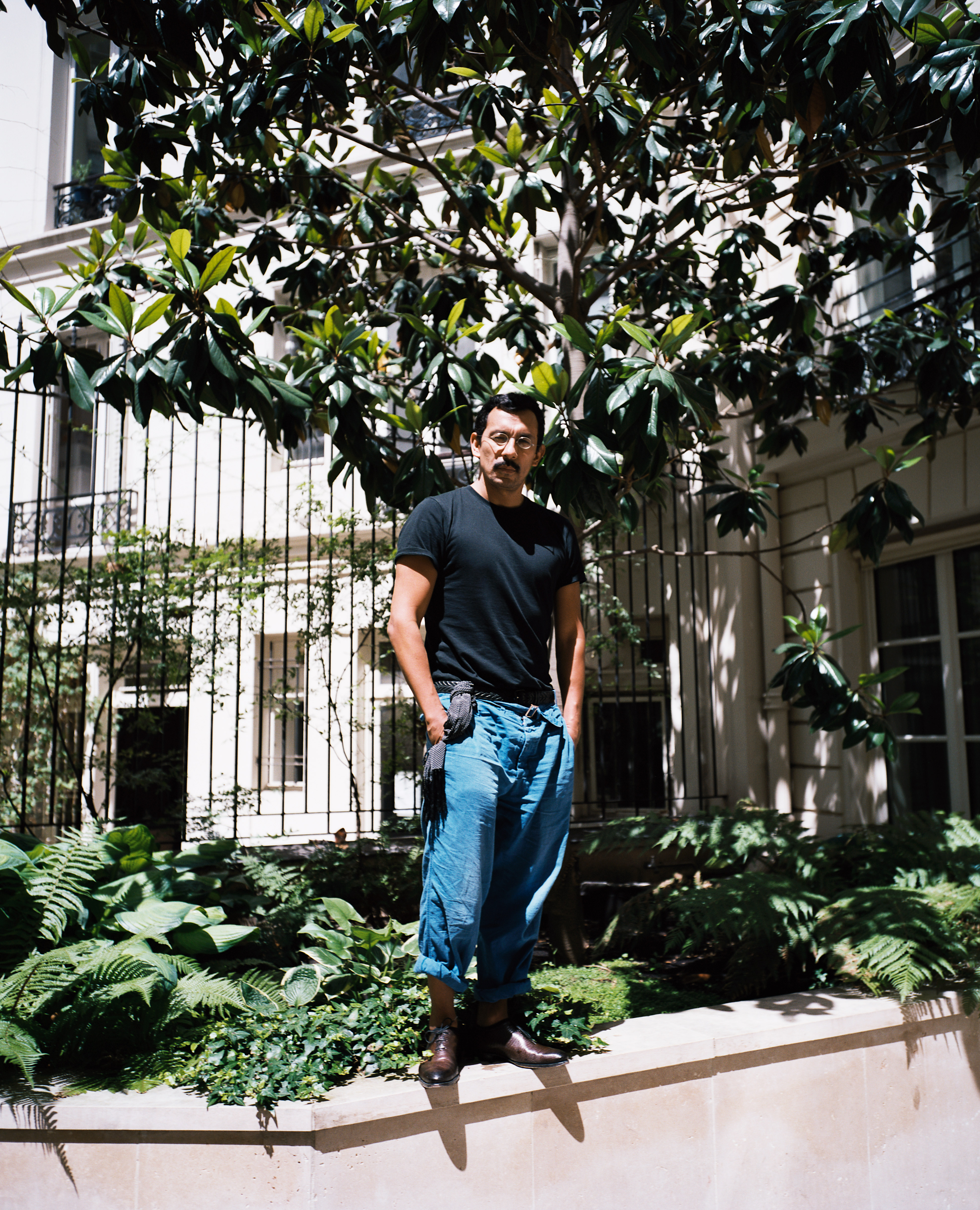Purple Magazine
— Purple 25YRS Anniv. issue #28 F/W 2017
Haider Ackermann
the high road
interview and portrait by OLIVIER ZAHM
photography by OLA RINDAL
style by RÚBEN MOREIRA
Since creating his own line in 2001, Haider Ackermann has developed a long, romantic silhouette, far from convention, ideal for modern women who like to get away, softly hiding them in warm, deep colors and voluptuously draped fabrics. Recognized for an exquisite sense of androgyny, his collections recall the dignity, mystery, andnobility of forgotten worlds, yet without nostalgia.
For two decades Ackermann has remained an independent, with no marketing agenda, expanding his label, guarding his vision, protecting his private life, and creating around him an intimate circle of artists, intellectuals, and friends in Paris.
Last season, while continuing his own brand, he was asked to join Berluti, to design men’s clothes. Working with a luxury Paris house presents endless possibilities for Ackermann and opens a new period in his life.
OLIVIER ZAHM —…
